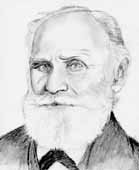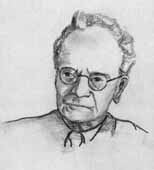free2bme ... don't be afraid to b u
EDPL Wiki
Wiki
http://techforinstructionsum08.wikispaces.com/Behaviorism
Major Theorists
Psychological behaviorists
Ivan Pavlov (1849-1936)
B. F. Skinner (1904-1999)
Edward Thorndike (1874-1949)
Methodological behaviorist
John B. Watson (1878-1958)
Clark Hull
Analytical or logical behaviorists
Gilbert Ryle (1900-1976)
Ludwig Wittgenstein (1889-1951)
U. T. Place(1924-2000)
The above section has really bugged me from the moment it was posted. I really wanted to edit it, but felt I could not – I did not have ownership and didn’t understand how wikis were supposed to work. Below is how I would have edited it.
Major Theorists
Psychological Behaviorists
 Ivan Pavlov (1849-1936)
Ivan Pavlov (1849-1936)
"Science demands from a man all his life.
If you had two lives that would not be enough for you.
Be passionate in your work and in your searching."--Ivan Pavlov
A 1904 Nobel Prize winner in Physiology, Pavlov is best known for his research on physiology and digestion and classical conditioning. Ivan Pavlov's discovery and research on reflexes influenced the growing behaviorist movement, and his work was often cited in John B. Watson's writings. Other researchers utilized Pavlov's work in the study of conditioning as a form of learning. His research also demonstrated techniques of studying reactions to the environment in an objective, scientific method. (http://psychology.about.com/od/profilesofmajorthinkers/p/pavlov.htm)
 B. F. Skinner (1904-1999)
B. F. Skinner (1904-1999)
"The consequences of behavior determine
the probability that the behavior will occur again" --B. F. Skinner
Using a device he developed called the “cumulative recorder”, he found that behavior did not depend on the preceding stimulus as Watson and Pavlov maintained. Instead, Skinner found that behaviors were dependent upon what happens after the response. Skinner called this operant behavior. (http://psychology.about.com/od/profilesofmajorthinkers/p/bio_skinner.htm)
Edward Thorndike (1874-1949)
In 1912, Edward Thorndike publishes Animal Intelligence. The article leads to the development of the theory of operant conditioning.
Edward Thorndike developed a principle suggesting those responses that are closely followed by satisfaction will become firmly attached to the situation and therefore more likely to reoccur when the situation is repeated. Conversely, if the situation is followed by discomfort, the connections to the situation will become weaker and the behavior of response is less likely to occur when the situation is repeated. (http://psychology.about.com/od/lindex/g/lawofeffect.htm)
And then I would’ve continued with the same design format and information for the rest of the scientists listed in that wiki.